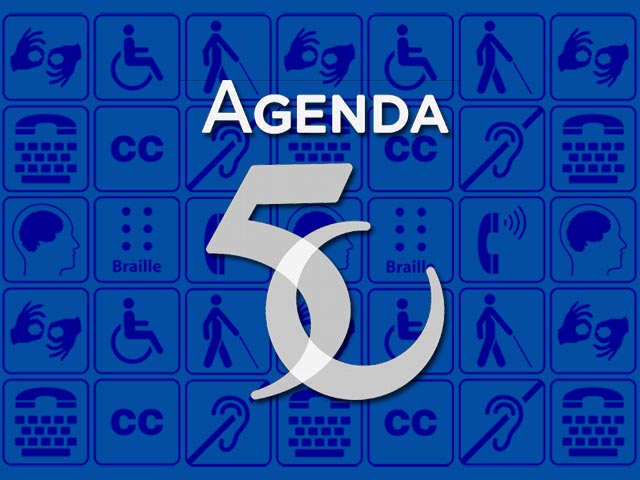We present a Discussion paper of dynamics of changes in the Belarusian civil society in 2015-2017.
Potential and opportunities for launching in Belarus the mechanisms to enjoyment of all human rights by persons with disabilities

We present a research results report (abridged version) of potential and opportunities for launching in Belarusan regions the mechanisms of local planning to promote, protect and ensure the full and equal enjoyment of all human rights and fundamental freedoms by all persons with disabilities.
Objectives
Belarus adhered to the UN Convention on the Rights of Persons with Disabilities (referred to hereinafter as “the UN Convention”) on September, 24 2015 and ratified it on October, 3 2016. The comprehensive implementation of the UN Convention is connected with harmonization of the Belarusan legislation with the provisions of the UN Convention, and, what is no less important, with introduction of relevant changes in Belarusan law enforcement practice. The experience gained by the European countries during implementation of The Standard Rules on the Equalization of Opportunities for Persons with Disabilities proved the utmost importance of starting promoting innovations first and foremost on the local communities level. Nevertheless these processes are attended with some difficulties, arising both at national level and at the level of concrete regions, which are unequally ready to implement the provisions of the UN Convention.
In this regards on the initiative of the Office for the Rights of People with Disabilities in the framework of the Agenda 50 Campaign Centre for European Transformation undertook the study of readiness and real opportunities in Belarusan regions for launching the mechanisms of local planning to promote, protect and ensure the full and equal enjoyment of all human rights and fundamental freedoms by all persons with disabilities. The practical task of the study was relying on the positive experience of implementing such strategies on local level in the EU countries (notably, Sweden and Poland), to launch the local planning process in several Belarusan regions. This task implies continuation of work with urban environment and with subjects of urban development during 2016-2018 in range of municipalities, selected on the ground of the primary analysis of the study data.
Methodology
Methodology of the study includes:
- study of data in open sources and previous researches in order to choose the most appropriate regions from the point of view of their social and economic characteristics;
- expert survey within national CSOs which have developed regional structures and within active regional organizations about the potential of social groups in particular regions;
- exploratory visits and trips to the regions, selected during first two stages, to interview local interest groups and local authorities;
- integration of information and formulation of recommendations regarding possible forms of engaging local groups and authorities in designing and implementing pilot local strategies that promote, protect and ensure the full and equal enjoyment of all human rights and fundamental freedoms by all persons with disabilities.
The expeditions are premised on the “action research” methodological principle, which implies engagement in activity situation and acquirement of knowledge in course of interaction with the object of research. The expeditions were not intended to provide an exhaustive image of the municipalities. The meaning and purpose of the expeditions is to figure out what are the norms and principles that organize the life of persons with disabilities and the activity of relevant stakeholders in Belarusan municipalities. To what extent do they comply with the principles, proclaimed by the UN Convention? What efforts and resources are necessary to adjust the present material in accordance with norms of equal rights for persons with disabilities?
In order to realize this task the researches hold range of interviews in the municipalities, talking to all possible entities they could reach, from representatives of local authorities, employees of state-run institutions and members of CSOs to ordinary people in the streets (“snowball” method of search for respondents). Members of the expeditions explored both the places functionally linked with disability sphere (Departments of social protection, Territorial centers for social services for population, hospitals, special needs schools, organizations of persons with disabilities etc.) and “places of life” of locals (among such places could be museums, houses of culture, churches, recreation areas, ateliers, clubs and so on). Researchers also noticed externally observable factors of local environment: observable well-being, development of local infrastructure, manner of local inhabitants to spend their free time etc.
Doing so, over the course of the expedition the researchers, without going over the municipality with a fine-tooth comb (visiting all without distinction entities, meeting each and every potential stakeholder) get quite full image of level of openness of the municipality, of the parties potentially interested in the process of implementation of the UN Convention in their region, character of their commitment and degree of their motivation, of current partner and conflict relationships.
The field phase of the research (exploratory expeditions) took place during November-February 2015 (pilot phase) and March-June 2016 (core phase of the study).
Study object and purpose
The study object was Belarusan municipalities located in different regions with varying population size, level of socio-economic development and of social activities. Doing so, the research team could get data for comparative analysis and find out essential distinctions and similarities of different types of Belarusan municipalities. The municipalities were chosen taking into account their:
- Geographic location;
- Population size;
- Basic socio-economic characteristics;
- Recommendations by organizations of persons with disabilities that indicated the municipalities with the highest potential (from their point of view) to launch mechanisms of local planning.
The purpose of the research was the identification of 5 municipalities with the highest potential to develop local strategies. In this regard after accomplishing the field phase there were held the research seminars to evaluate and rank the explored municipalities using set of parameters. In order to rank the cities according to their general development level, we organized two groups of parameters:
- General conditions of development and state of urban environment (axis “Environment”);
- State of city’s subjects (axis “Subjects”).
Analysis of influence of the socio-economic factors on the urban environment also was of interest for the researchers. The general conclusion that can be done from the comparison of objective socio-economic indices with the development level observed by the researchers (environment and subjects axes) is that the current state of development of the Belarusan cities cannot be explained exclusively by objective economic and demographic factors. Various humanitarian factors also matter and from our point of view their influence is more significant, from “liberal” or “restrictive” character of local authorities’ policies to the factor of presence or absence in the city of remarkable personalities (“freaks”, local activists, local cultural celebrities) who permanently actively care about their city.
This short report presents the main conclusions about the environment for the implementation of the UN Convention in Belarus. The first part is a short overview of Belarusan legal framework from the perspective of the UN Convention approach. We consider it important since on the one hand, the national legislation reflects the conceptual attitude towards the issues of disability; on the other hand, it represents essential action condition. In the second part there is the analysis of city stakeholders and their role in the UN Convention implementation mechanisms at local level.
This report did not aim to provide exhaustive description of the situation in each of the explored cities; we rather sought to define existing mechanisms, to identify pressure points and to highlight the best practices. Finally, the third part is the analysis of problems and perspectives of implementation of the UN Convention through the example of several spheres (access to physical space, communication accessibility and access to employment), in view of collected material about existing practices and approaches.
For more detailed analysis please consult the full report (available in Russian)
Download document 
About authors:
Andrei Yahorau is the director of the Center for European Transformation, master of political science. He graduated from the Politology Department of Belarusan State University and received his master’s degree in political science at the same university. Since 2001, he has been working in the field of political research. His research interests include post-Soviet territory transformation, civil society, political transformations in Belarus and the Eastern Partnership region, and European studies.
Alena Zuikova is an analyst of the Center for European Transformation, master of political science. She graduated from European Humanities University (Vilnius, Lithuania) with her bachelor’s degree in political science and European studies. She also graduated from the Institut d'Études Politiques de Lille (Institute of Political Science, Lille, France) with her master’s degree in European affairs. Her research interests include the European neighborhood policy, the Eastern Partnership, the European policy concerning Belarus, the European policy of development; civil society, CSOs’ role in Belarus democratization processes, and the Eurasian Economic Union.
Ihar Rasolka is a sociologist, Master of Sociological Sciences. Graduated from the Department of Sociology of the Belarusan State University. Focus of research interests: quantitative methods of sociological data analysis and ethnosociology.
Olga Lashkevich is an Master of Political Sciences. Graduated from the Faculty of Journalism and completed her master and PhD courses in Political Sciences of the Belarusan State University. Lecturer in political sciences since 2004. Focus of research interests: social communication and communication technologies and mass media measurements and analytics.
Others
-
Belarusan human rights defenders’ view on human rights activity and questions of cooperation between Belarusan human rights organizations
We present a research results report of Belarusan human rights organizations sector.
-
Social base of transformation programs in Belarus
We present a sociological research report (abridged version) of social base of transformation programs in Belarus.
-
Potential and opportunities for launching in Belarus the mechanisms to enjoyment of all human rights by persons with disabilities
We present a research results report (abridged version) of potential and opportunities for launching in Belarusan regions the mechanisms of local planning to promote, protect and ensure the full and equal enjoyment of all human rights and fundamental freedoms by all persons with disabilities.
-
Capacity of youth non-governmental organizations and Initiative groups for cooperation in addressing common objectives
The Centre for European Transformation, commissioned by the Office for European Expertise and Communication, in April-June 2015 was carried out a study to assess the interaction potential of Belarusan youth NGOs in the solution of common tasks.








Comments
From farewell to a new Eastern policy and towards a new development
Poland and Germany were both initiators and drivers of a New Eastern policy linked to the Eastern neighborhood and Russia/Soviet Union.